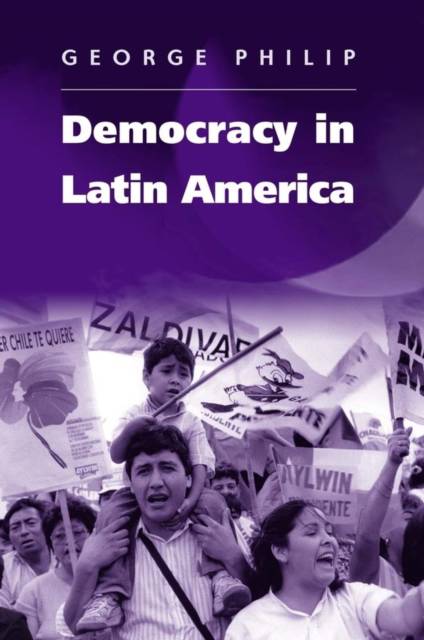
Door een staking bij bpost kan je online bestelling op dit moment iets langer onderweg zijn dan voorzien. Dringend iets nodig? Onze winkels ontvangen jou met open armen!
- Afhalen na 1 uur in een winkel met voorraad
- Gratis thuislevering in België vanaf € 30
- Ruim aanbod met 7 miljoen producten
Door een staking bij bpost kan je online bestelling op dit moment iets langer onderweg zijn dan voorzien. Dringend iets nodig? Onze winkels ontvangen jou met open armen!
- Afhalen na 1 uur in een winkel met voorraad
- Gratis thuislevering in België vanaf € 30
- Ruim aanbod met 7 miljoen producten
Zoeken
€ 42,95
+ 85 punten
Omschrijving
Latin America has seen a great extension of democratic government over the past twenty years. However democratisation has proved problematic in a number of ways: many Latin American countries have seen little per capita growth; poverty has increased; and political crises have often recurred. The idea of the 'Washington consensus' - that democracy, free markets and prosperity would go together in the region - has so far failed.
In the first part of the book, George Philip identifies the reasons why this should be so. The chapters are organised around relevant historical and institutional factors, such as problems with law enforcement and political tensions inherent in some Latin American variants of presidentialism, authoritarian legacies and patrimonial bureaucracies, civil-military relations, market reform and international intervention. Globalization has exacerbated these difficulties, since it has aggravated the already acute problems of governance facing emerging democracies. The second part of the book explores these issues in relation to a series of case studies involving Peru, Mexico and Venezuela.
This will be an ideal textbook for students taking courses in Latin American politics and Latin American Studies.
In the first part of the book, George Philip identifies the reasons why this should be so. The chapters are organised around relevant historical and institutional factors, such as problems with law enforcement and political tensions inherent in some Latin American variants of presidentialism, authoritarian legacies and patrimonial bureaucracies, civil-military relations, market reform and international intervention. Globalization has exacerbated these difficulties, since it has aggravated the already acute problems of governance facing emerging democracies. The second part of the book explores these issues in relation to a series of case studies involving Peru, Mexico and Venezuela.
This will be an ideal textbook for students taking courses in Latin American politics and Latin American Studies.
Specificaties
Betrokkenen
- Auteur(s):
- Uitgeverij:
Inhoud
- Aantal bladzijden:
- 232
- Taal:
- Engels
Eigenschappen
- Productcode (EAN):
- 9780745627601
- Verschijningsdatum:
- 4/06/2003
- Uitvoering:
- Paperback
- Formaat:
- Trade paperback (VS)
- Afmetingen:
- 170 mm x 229 mm
- Gewicht:
- 340 g

Alleen bij Standaard Boekhandel
+ 85 punten op je klantenkaart van Standaard Boekhandel
Beoordelingen
We publiceren alleen reviews die voldoen aan de voorwaarden voor reviews. Bekijk onze voorwaarden voor reviews.











